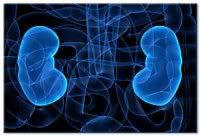Canadians' sodium intake leaving a bitter taste
Posted By TYLER BALL, FOR THE WHIG-STANDARD
Posted 2 days ago
Canadians can save $2 billion in health-care costs if they reduce their consumption of salt by one-third, says a study released Thursday by the Sodium Working Group, a government-backed research effort.
Michael Adams, a member of the working group, said sodium reduction is one of the biggest challenges to the country's health, especially since over 77% of it comes from the manufactured food we eat, and not out of a shaker."It's insidious, it's sneaking up on us. We don't even know its there."
Excess sodium is a cause of heart attacks, strokes, congestive heart failure, kidney disease and stomach cancer, killing between 10,000 and 15,000 people and costing the health-care system at least $2 billion annually.
"Measurements suggest that Canadians are consuming 3,400 milligrams of sodium per day," said Adams. "The recommended amount is closer to 1,500 mg per day, which is quite a difference."
The researchers recommend that Canadians reduce their intake to 2,300 mg per day by 2016.
"(It's) not all the way down to the recommended amount, but a good compromise," Adams said.
Adams hopes Canada can follow a model successfully implemented in Finland and the United Kingdom, where the government asked for a reduction of salt in processed foods and manufacturers obliged.
"(It's) a system-wide approach that has benefited people enormously," he said.
"Finland (did) it quite a long time ago and they've shown a remarkable improvement in the incidence and prevalence of cardiovascular disease."
However, the recommendation is voluntary. No manufacturer will be forced to reduce the salt in its products but Adams said the market will call for it.
"Once there's a behaviour that has educated people into wanting this, every single company should be abiding by this reduction," he said. "All consumers ... need to be made aware so they can provide the feedback to reinforce this behaviour."
Health Canada will track the progress of manufacturers on a website, and recommend the most salt-conscious producers.
The sodium working group wants the reduction to appear in every aisle of the grocery store, not just in foods that are traditionally sodium-rich.
"No longer will you have to only just pick out certain foods ... all foods will have a reduction in salt," he said, adding it won't be easy, due to the versatility of salt and the many ways it's used in food production.
"It's there for flavour reasons, for manufacturing reasons and bacterial reasons," said Adams. "It's not just for the simple flavour enhancement that many people think."
"To remove it is not trivial."
Another problem is the way consumers have acquired a taste for salt because of its prevalence.
"(Producers') fear is people are going to say, 'This doesn't taste very good', " he said. "This is why the target is 2016, it's not tomorrow, (so) we can do a gradual reduction."
Hopefully this will wean consumers away from salt.
"I would argue that six years is actually a long time for adjusting your diet," said Adams, "(but) if we can meet that target for 2016, then all the power to us."
"At least, let's get onboard with this strategy."
tball@thewhig.com
I agree on all levels since being told to reduce my sodium intake to 1300-2000 mg/day, I have noticed a huge craving for all things salty. Most days are okay but their is the odd day it is super difficult. Why have companies been allowed to put in the amounts of sodium that they do for so long? We have to have certain amount of sodium, potassium and phosphorus but for the renal patient to much is NOT a good thing as the insufficient working kidney cannot process these complex minerals (hubby is shuddering at this usage as he his a chemist/physicist). So we are looking at reductions by 2016 and they are voluntary...hmm.
Let me know what you think.
Cora







No comments:
Post a Comment